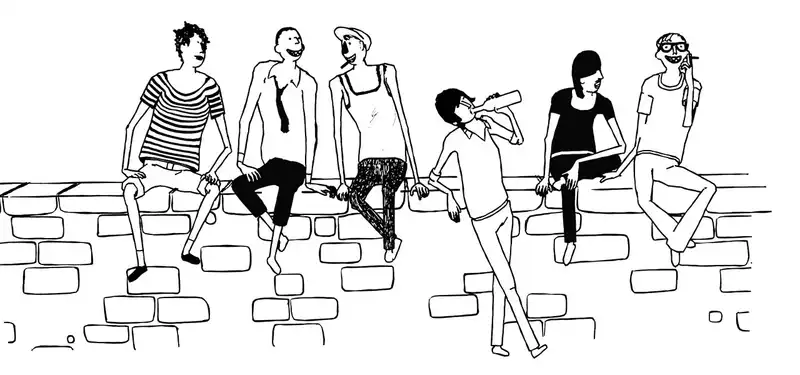Nov 10, 2024
2025 Oscar Short Film Candidates: - The Car that came back from the sea - Director Yadviga Kowalska
Welcome to the spotlight series of Cartoon Brew, which focuses on the 2025 Academy Award-nominated animated shorts. Films in this series have been certified on one of several routes, including winning an Oscar at a film festival, exhibiting in a theater or winning a Student Academy Award.
Today's film is a car coming back from the sea from the Swiss and Polish filmmaker Jadwiga Kowalska. The short film won the Jury Award at Annecy and the Best Animated Short at the Palm Springs International Short Film Festival to qualify for the Academy Award.
This short story takes viewers on an expedition along the ragtag group of Polish friends in the early 1980s. It's a party full of life and frivolity led by Leszek, whose dream of having his own car is now fulfilled. As the group cruises along the Baltic coast of Poland, they find both their cars and their country falling apart in the stories of ordinary people caught in the wind of the revolution.
Comic Brewing: How did the testimonies from the people you interviewed influence your approach to creating this short story-
Jadwiga Kowalska: Interviews with my relatives were often very funny, with hearty laughter sometimes crying or vice versa. This thin line impressed me from the beginning. Even though the past often had a sad side, it was almost always remembered with a twinkle in the eye. I really wanted to translate this lightness into a film. That's probably why the film has become so hopeful and a little ironic, even though the subject matter is quite heavy.
What was it that forced me to connect with you and direct a film about this story or concept-
This is my family story and Doki, but I chose to tell it as a kind of semi-documentary, semi-fictional film. When I asked my mother why she left Poland as a child, she always gave a very short answer: "There was nothing in Poland."For her, it was the end of the debate. I couldn't really imagine what it meant. When I reached my mid-30s, I wanted to understand where I came from, where my family roots lie, and why my parents left home when I was 20. That is the beginning of this film.
What did you learn through the experience of making this film, production-wise, filmmaking-wise, creative, or on the subject -
Dealing with text was especially important because I had never used it as a narrative element in my films. How to deal with the passage of a documentary interview - how to get a genuine dialogue from the hero I invented - how to get unity from both.-
It is also important to understand that at first no one was interested in this film. The funding phase was more difficult than expected, as local funding agencies were not interested in films about migration in Poland. In addition, the collaboration with the Polish co-producers did not materialize because the first generation of directors in Poland and Switzerland did not see how they could communicate new/relevant/exciting things about this topic. And finally, this period in Poland in 1981, along with the Second World War, is one of the most frequently dealt with themes in Polish cinema.1
In this sense, the theme of the film was "between the chair and the bench" (as it says in Swiss German), it was a Swiss Polish film and a sui for the Poles, so I had to learn to trust my intuition and stick to the theme. The current feedback from the festival is very positive. Many can be equated with films, even if they have nothing to do with Poland.
Can you explain how you developed a visual approach to cinema - why did you settle for this style/technique-
Visual Art in the Film Many of my relatives' memories were so vague that I decided that this ambiguity should be translated visually. I'm not a very good draftsman, so the challenge was to realize the film in 3d (my preferred animation technique), but to achieve a very two-dimensional image with a rendering that reflected the fragmentary nature of fading memory. It took a lot of experimentation to get the final rendering out of Blender, which would take a limited stroke of my sketch. I worked a lot with masks, but this technique will develop further in the next film.
.



Post your comment